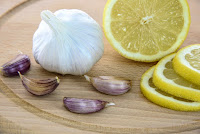I have often been asked this question – which diet is best? Nutrition is probably the only art and science that can be both right and wrong at the same time. Why? Simply because we are all unique and one man’s meat is another man’s poison.
The common ones are:
- Paleo (eating foods that
our hunter gatherer forefathers used to eat, no grains or legumes)
- Keto (over half your
caloric intake is from fats, about 30% from protein and approximately 10%
from carbohydrates)
- Gluten free (eliminating wheat,
rye, barley, oat, spelt and kamut)
- Dairy free (eliminating
all foods made from the milk of a cow, goat or sheep)
- Vegetarian (mainly plant
based with some eggs, dairy, honey)
- Vegan (no animal products
at all)
- Low fat (when fat is taken
out, the mouth feel changes, satiety factor is reduced so other flavours, salt
and sugar is enhanced to make the food palatable)
- FODMAP (where specific carbohydrate
containing fructose and the various saccharides make digestive symptoms
worse)

Each diet has its own merits and demerits, some more than
others. Ultimately it depends on the health
objective (do you want to lose weight, gain weight, increase your energy, eliminate bloating, flatulence, gut pain or diarrhea or constipation or reduce pain), the genetic make up and the presentation of health or disease. There are some strong indications of certain
diets consistently being useful for a lot of the times with certain conditions,
e.g. gluten and dairy free with IBS or eczema. In
times that the benefit is not there, there is a deeper underlying cause. The most important aspect of any diet or
treatment is to identify the underlying driver of that imbalance. Sometimes the underlying is simple to
identify, other times, most tests, functional and pathology tests have to be
employed to work out what caused the symptom(s).
In summary, no ONE diet is the best. What we do know is best is feeding
ourselves only until we are 80% full at a meal and to have a proper break
from meals between dinner and breakfast, hence the name break-fast. We are designed to be fasting at night, or what
is better known as time restricted eating. Whilst we could be feasting during this
holiday season, just remember to have a break from feasting after those big,
rich meals to allow your body to recover and have a break! Make 2021 your best year yet, feel the vitality and confidence!












